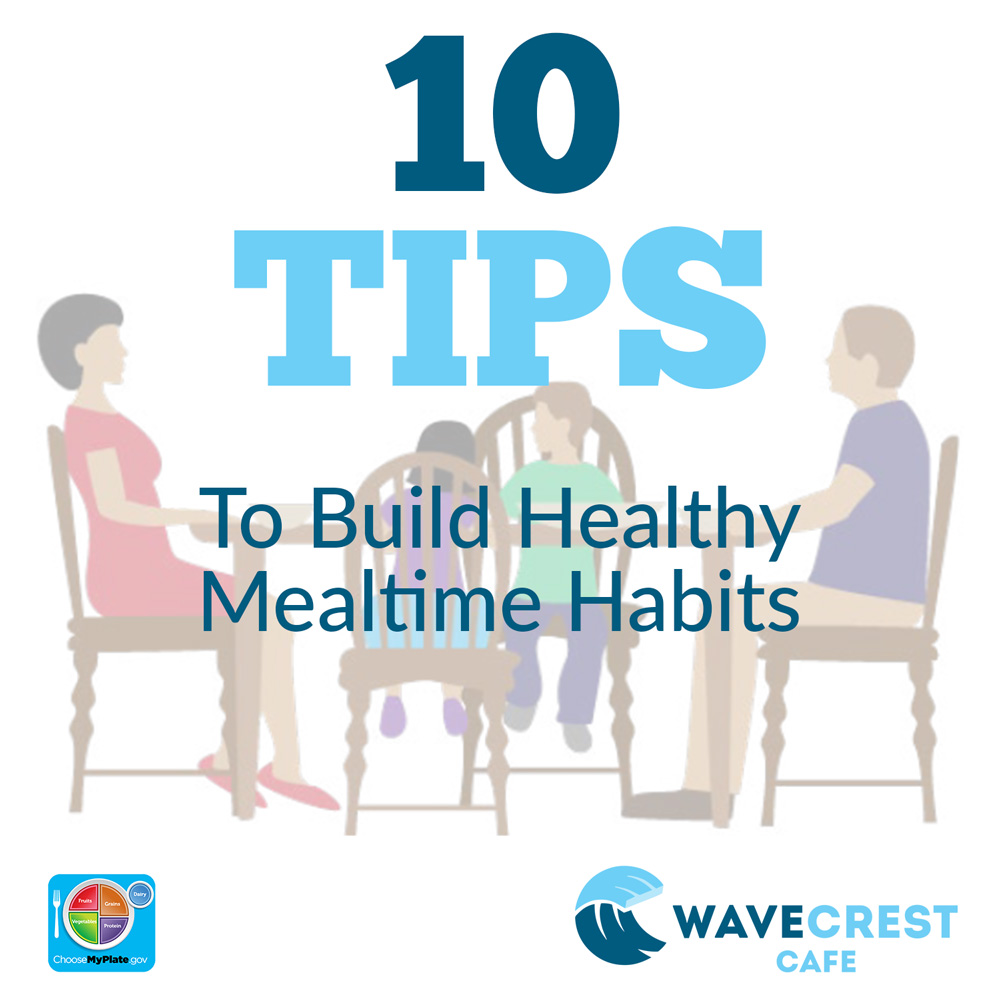
10 Tips For Families: Building Healthy Mealtime Habits
November 15th, 2018
Our friends at MyPlate keep developing some great resources. One of the latest os a tip sheet for families to help develop healthy habits at mealtimes. While geared for younger children in preschool and elementary school age, the foundations of these tips can work for any family. We’ll list the tips here, and if you’d like to download and print out a single page, just click here: 10Tips_HealthyMealtimeHabits
10 Tips For Families: Building Healthy Mealtime Habits
Plan meals and snacks: Make time for three meals and one or two snacks every day. Offer choices from each food group—fruits, vegetables, whole grains, low-fat dairy, and protein foods— throughout the day so your preschooler gets the nutrition he or she needs.
Make meals enjoyable: Eat meals with your children whenever possible. Let them help you prepare the meal. Make conversation about something that made them laugh. Keep mealtime upbeat and stress free.
Try to get two food groups in a snack: Pair sliced tomato with low-fat cheese or add nut butter to a 100% whole-wheat mini bagel.
Keep things positive: Talk about the color, feel, or flavor of foods so they sound appealing to your preschooler. Discourage others from making negative comments about foods during meals.
Develop taste buds: When preschoolers develop a taste for many foods, it’s easier to plan meals. Keep in mind that it may take a dozen tries for a child to accept a new food. (WaveCrest Cafe note: this is one of the reasons we have Fear Factor Taste Challenges at schools to encourage kids to try new foods).
Visit the market: Shopping can teach your preschooler about food and healthy eating—talk about where foods come from and how they grow.
Let children practice serving themselves: Include smaller cuts of fish or meat and offer small serving utensils so they get just enough during meals. Encourage them to ask for more if they are still hungry.
Beverages are important, too: Water helps to quench your preschooler’s thirst, and milk provides nutrients for growth. Offer water or fat-free or low-fat milk as beverage choices instead of sugary drinks.
Help them know when they are full: Encourage your child to stop eating when he or she is full rather than when the plate is clean. When your child is not interested in the meal, excuse him or her from the table.
Reward with attention, not treats: Rewarding children with sweet desserts or snacks may encourage them to think that treats are better than other foods. Comfort and reward with care and praise, not food.
